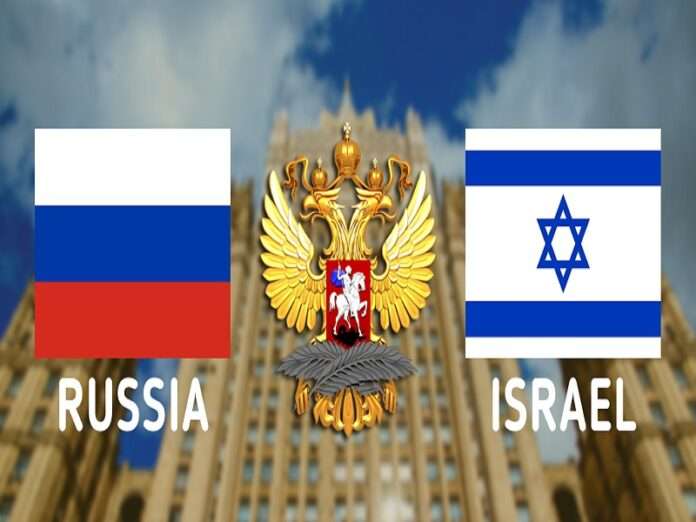Russian Permanent Representative to the UN Vasily Nebenzia made headlines across the world after saying the following at the Security Council on Thursday: “Unfortunately, Israel has blatantly ignored UNSC resolution 2728, with encouragement from the US, which was quick to call it ‘non-binding’…In case it fails to be implemented, the Council has the power to sanction violators and saboteurs of its decisions. We will return to this issue in the very near future.”
This will predictably be spun by top Alt-Media influencers to falsely claim that it serves as proof of their conspiracy theory that Russia is secretly colluding with Iran against Israel even though President Putin is a proud lifelong philo-Semite as proven by his own words from the Kremlin website from 2000-2018. The fact that it follows Mehr News’ fake news about the Russian leader hailing Iran’s retaliation against Israel will further manipulate popular perceptions about that country’s position towards this conflict.
Nevertheless, the objective reality is that this is really just a principled soft power move aimed at reaffirming the primacy of international law as enshrined in the UN Charter, not a partisan one against Israel due to some presumed bias. It was already lamented here in early April that “Israel’s Flouting Of UNSC Resolution 2728 Shows The Limits Of International Law” since it’s unimaginable that the US will agree to sanction its ally or that a “coalition of the willing” will assemble to force it into compliance.
Ambassador Nebenzia knows this, yet he’s also not going to stop reminding his counterparts at the Security Council about their legal duty to consider tabling a resolution for sanctioning Israel. There’s no chance that it’ll pass due to America’s veto but it’s still important to show the world that some countries remain committed to the original “rules-based order” from the post-World War II era. Despite being imperfect, it was still better than the hypocritical double standards that the West presently employs.
Russia’s Permanent UN Representative himself had just described that approach earlier in the week as “a parade of hypocrisy” after the West condemned Iran’s retaliation against Israel but not Israel’s bombing of the Iranian consulate in Damascus that violated international law and provoked its attack. At the same time, however, the Kremlin carefully signaled three times since then that it still enjoys cordial ties with Israel in spite of that and even though that it partially complied with the US’ anti-Russian demands.
Kremlin spokesman Dmitry Peskov confirmed on Wednesday that his country maintains constructive dialogue with Iran and Israel, after which the Russian Ambassador to Israel Anatoly Viktorov met with Israeli Foreign Ministry officials a day later to discuss bilateral cooperation. Thursday also saw Russian Deputy Foreign Minister Mikhail Bogdanov disclose after a meeting with Israeli Ambassador to Russia Simona Halperin that he called on both sides – Israel and Iran – to show “maximum restraint”.
What all of this goes to show is that Russia doesn’t have any anti-Israeli intentions in proposing sanctions against it for refusing to implement UNSC 2728. The sole purpose is to reaffirm the primacy of international law as enshrined in the UN Charter. The example that’ll be set by the US likely vetoing any sanctions that might soon be tabled would further erode the legal foundations upon which the post-World War II era was built. That might be inevitable, but Russia still doesn’t have to help this process unfold.








